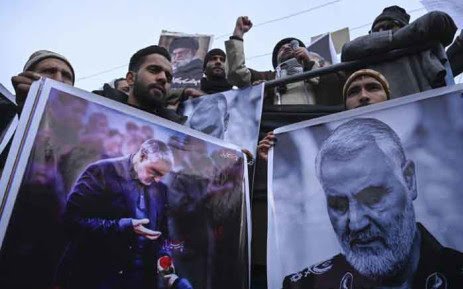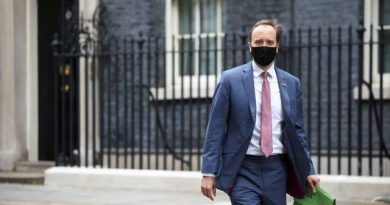In death, Iran’s Soleimani bequeaths perilous dilemma for Iraq
Baghdad (Reuters) – A month after a U.S. missile killed him, Qassem Soleimani looms as large over Iraq’s fractured democracy as he ever did alive.
The death of the Iranian general removed a shrewd guiding hand on the pro-Tehran Shi’ite militias who revered him, setting off a menacing new instability in Iraq’s fragile political arena.
Now the shadowy power structure he helped to build — a state above the state made up of Iraq’s formal institutions — risks colliding ever more bloodily with a powerful youth-led anti-Iranian protest movement.
That in turn poses a quandary for Iraq’s leaders, torn by a choice between Iranian tutelage and meeting the demands of a generation seeking an end to Iran’s dominance.
They know that if they tilt too far towards Tehran they risk worse political turmoil and Iraq written off as a failed state, analysts and diplomats say.
“There is mounting Iraqi determination to reject the increasing Iranian influence and this is what we are seeing in the protests,” said a prominent Iran-aligned Shi’ite party leader, who declined to be identified.
“The Iranians should review their policies if they want to build good relations with Iraq.”
While Soleimani’s death weakens Iran, it also leaves a damaging security vacuum in Iraq because the veteran commander held final sway over Tehran’s Iraqi paramilitary forces.
Analysts and diplomats fear the absence of his seasoned leadership, and his ability to dial militias up and down, could result in an Iraq with the paramilitary equivalent of a Frankenstein’s monster on the loose.
One of the most powerful Iraqi paramilitary leaders, Abu Mahdi al-Muhandis, a close Soleimani confidant, died in the same U.S. drone strike on Jan. 3. Fear and uncertainty among his fellow militia chieftains has sent many of them into hiding, changing residence and even phone numbers.
“Even Soleimani and Muhandis found it hard at times to keep Kataib Hezbollah (the militia founded by Muhandis) under control and there’s now a stronger possibility they might act on their own,” says one Western envoy to Baghdad.
In Iraq, months-long protests against political elites and their Iranian patrons continue, having forced the resignation of the prime minister, an important position of formal power alongside the 329-seat parliament and the president.
But the protests have made no change to the pro-Iranian paramilitary groups. Estimated to number up to 160,000 men in total, these groups are built around a core of militias founded, trained, armed and ideologically loyal to Iran.



